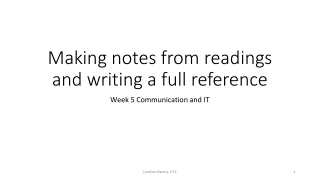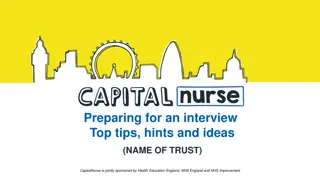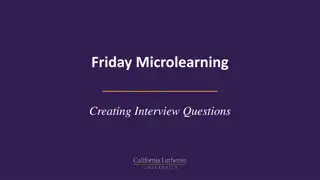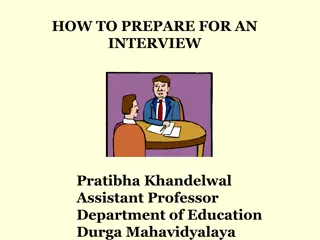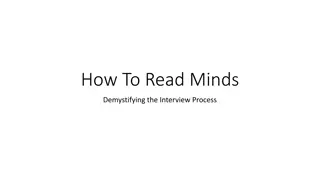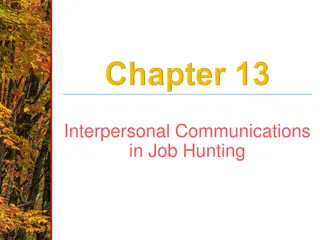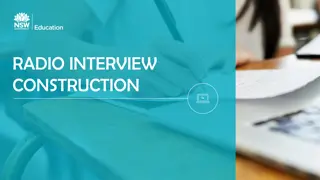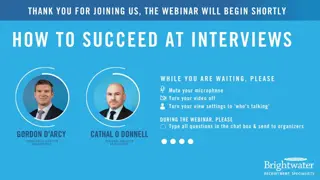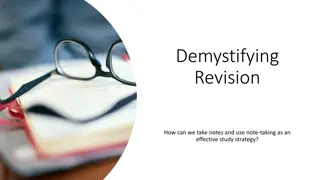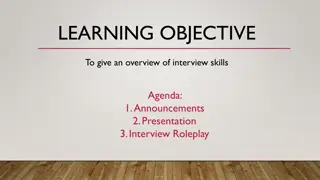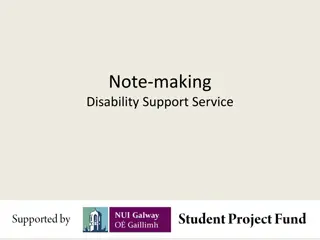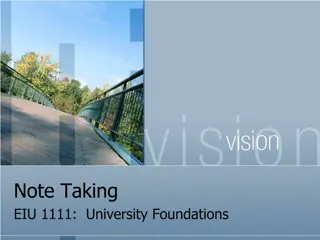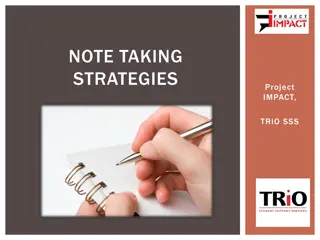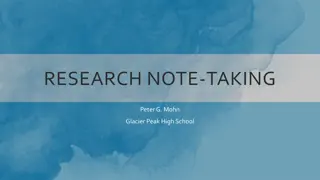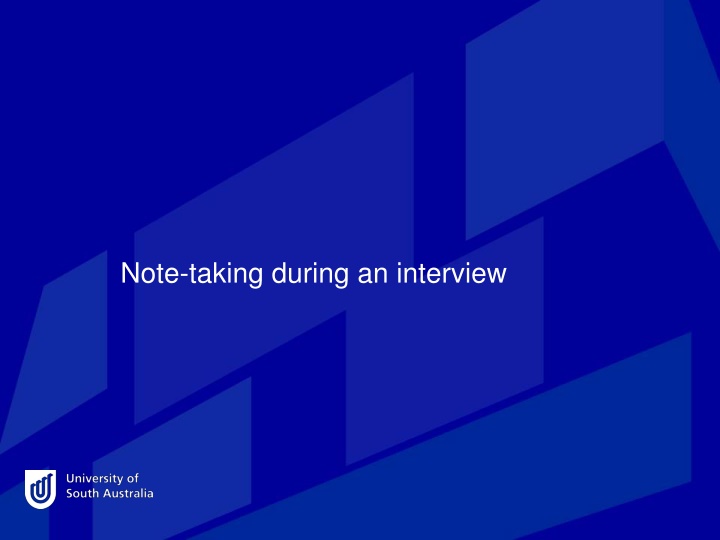
Effective Note-Taking Strategies for Interviews
Learn valuable tips for taking better notes during interviews, including techniques for capturing important information, asking insightful questions, and noting sensory details and emotions. Enhance your note-taking skills with expert advice on organization and follow-up actions.
Download Presentation

Please find below an Image/Link to download the presentation.
The content on the website is provided AS IS for your information and personal use only. It may not be sold, licensed, or shared on other websites without obtaining consent from the author. If you encounter any issues during the download, it is possible that the publisher has removed the file from their server.
You are allowed to download the files provided on this website for personal or commercial use, subject to the condition that they are used lawfully. All files are the property of their respective owners.
The content on the website is provided AS IS for your information and personal use only. It may not be sold, licensed, or shared on other websites without obtaining consent from the author.
E N D
Presentation Transcript
Tips for taking better notes 1 Get the names right Make sure you get the spelling right. Get the interviewee to confirm the spelling or if it is an event, get the program or agenda beforehand. Make judgements about what is interesting or important. Do not write everything down Distinguish between information and quotes Ensure that you are getting the numbers, names and spelling correct rather than the words the speaker is using to say them. If the speaker is giving information, slow them down to get details. - How do you know that? - How do you spell that? - Is that an approximation or an exact amount? The speaker may have said something important and this was followed by a powerful quote but you are still busy noting the first information. - Repeat what you thought you heard (Let me make sure I understand this correctly. Did you say ). Slow the speaker down Rephrase 2 Shurlds n.d.
Tips for taking better notes 2 Ask throwaway questions When you start falling behind, ask questions about general background which you already have information for and don t care about. This will give you time to catch up on something important or interesting the speaker had said. Ask speaker for documents such as photos, videos or other items that will tell you more about what they are saying. Go through them with the speaker and take notes. Ask if you could borrow or copy them. Ask for documentation Take notes about the setting Write down details about the speaker s home/office or where the interview is taking place. Ask the speaker questions about the items you notice. Write a word or two with a questions mark. Note what questions you asked. If you are interviewing multiple speakers, use a code to identify each of them. Initials work but beware of speakers with same initials. Note your questions Identify speakers 3 Shurlds n.d.
Tips for taking better notes 3 Take notes on senses and emotions Note what you see and smell, even what you feel and taste if this will help the story. If the speaker raises their voice or starts to cry, note what prompted this emotion and how they reacted. Note your emotions and those of the spectators. - What was the most emotional moment of the event? Your story is in front of you and not in your notebook. - Look up and don t just listen and write. Look up from your notebook After the interview or event Review your notes immediately after the interview or event (even before you get back to the newsroom). Where your scribbling is illegible, write the words out neatly while they are fresh in your mind. - Fill out partial quotes while you remember them. - Identify points to check with other sources. Outline your notes before you begin writing your story. - Highlight the good quotes or important points. - Mark related information with the same letter or code to organize the material. - Identify what is the beginning, middle and end of your story. If you are writing and not sure about something in your notes, call the source back. Outline your notes 4 Ask if you are not sure Shurlds n.d.
Some technical aspects Use a notepad with a narrow column. Invent your own shorthand or speedwriting. Use post-it notes. Flag the important. 5 Shurlds n.d.
Some shorthand examples B/4 IMO ASAP ETA NA SRO TNX/TKS 2 8 M NE U K before in my opinion as soon as possible estimated time of arrival not acceptable/applicable standing room only thanks to, too ate am any you okay bc BTW EOD IRT POV TOM 1 4 Y N R O YER because by the way end of the day in regards to point of view tomorrow one, won, want for why an, and are oh your, you re 6 Shurlds n.d.
Reference Shurlds, K n.d. Taking notes likes a journalist, viewed 16 November 2016, <http://cavern.uark.edu/~kshurlds/takenotes.html> 7 Shurlds n.d.

